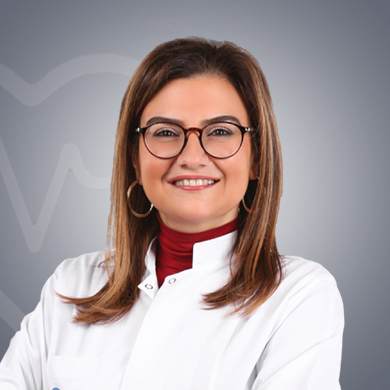
10 Years of experience
Speaks: English
The conditions that a pediatric neurosurgeon Burcu Goker treats are listed below:
Brain tumor surgery is a complicated procedure and requires in-depth expertise and monitoring in order to avoid any complications, which otherwise can damage the brain. In some cases, it is easy to separate tumors from adjacent tissues, which makes surgery easy. While in some cases, it is difficult to separate the tumors from the surrounding tissues. In these cases, the pediatric neurosurgeon will remove as much of the tumor as possible.
The conditions of the nervous system produce various symptoms in children ranging from mild to severe. You should never ignore any such symptoms because these may lead to severe results if left unaddressed. You should take your child to a pediatric neurosurgeon if he/she shows any symptoms. Some of the signs and symptoms that neurological disorders can produce are listed below:
One of the most common nervous system diseases in children, autism is characterized by impaired communication disturbances and social functioning. Symptoms include more focus on one item, lack of understanding social cues, and unresponsiveness. The severity of the symptoms also varies among affected individuals. Operating Hours of Dr. Burcu Goker The working hours of doctor Burcu Goker is 11 am to 6 pm from Monday to Saturday. The doctor has an off on Sunday. However, he is available on Sunday in case of an emergency. You can connect with the doctor or his attendant to confirm his/her availability because the doctor may not be available in the given time due to some personal reasons or any emergencies.
Dr Burcu Goker is an experienced pediatric neurosurgeon who performs a number of popular procedures mentioned below:
One of the popular neurosurgeons in the world, Dr. Burcu Goker has specialized in the surgical treatment of diseases of the nervous system in children. The doctor works in close coordination with a team of highly experienced and trained physicians and can handle even the most complex with quite an ease. The neurosurgeon follows all medical protocols to ensure patient safety. The doctor is also known for his patient-centric approach and high success rates. Craniotomy is a common procedure for brain tumor in children. It is an operation on the skull to access the brain. A very small area of a child's head is shaved and a cut is made on the scalp, and a piece of bone is cut out to access the brain underneath. In most cases, the bone is replaced at the end of operation.

Share Your Experience about Dr. Burcu Goker

A pediatric neurosurgeon specializes in the surgical care of children suffering from diseases of the nervous system. They diagnose and treat several conditions, including head and spinal deformities and injuries, brain tumors, seizure disorders. Pediatric neurosurgeons perform surgery on the spinal cord, the back, neck, brain, and nerves to treat neurological conditions in children. Pediatric neurosurgeons are highly trained doctors who are capable of diagnosing very complex conditions through the evaluation of detailed history and physical examinations, such as testing of mental status, sensation, vision, speech, strength, coordination, reflexes, and gait. As medical science is becoming more dependent on various technologies, the neurological examination remains a critical factor of the patient evaluation.
A pediatric neurosurgeon evaluates the condition of a child and recommends tests to diagnose disorders. A child has to undergo neurological examination which may include the following:
CT scan test uses X-rays and computer technology to make images of the body. Electroencephalogram records the brain's electrical activity through the electrodes attached to the scalp. MRI uses a combination of magnets to make images of organs and structures.
If your child shows some symptoms related to the nervous system, your primary doctor will ask you to see a pediatric neurosurgeon if they find that surgical treatment is required. Your primary doctor often seeks advice from a pediatric neurosurgeon and book an appointment with him for further evaluation. The neurosurgeon performs certain tests and determines a treatment plan based on the result of the tests. If your child shows below signs and symptoms, consider seeing a pediatric neurosurgeon who will evaluate the condition and suggest required diagnostic tests to detect the underlying conditions. Below are some of these signs and symptoms: